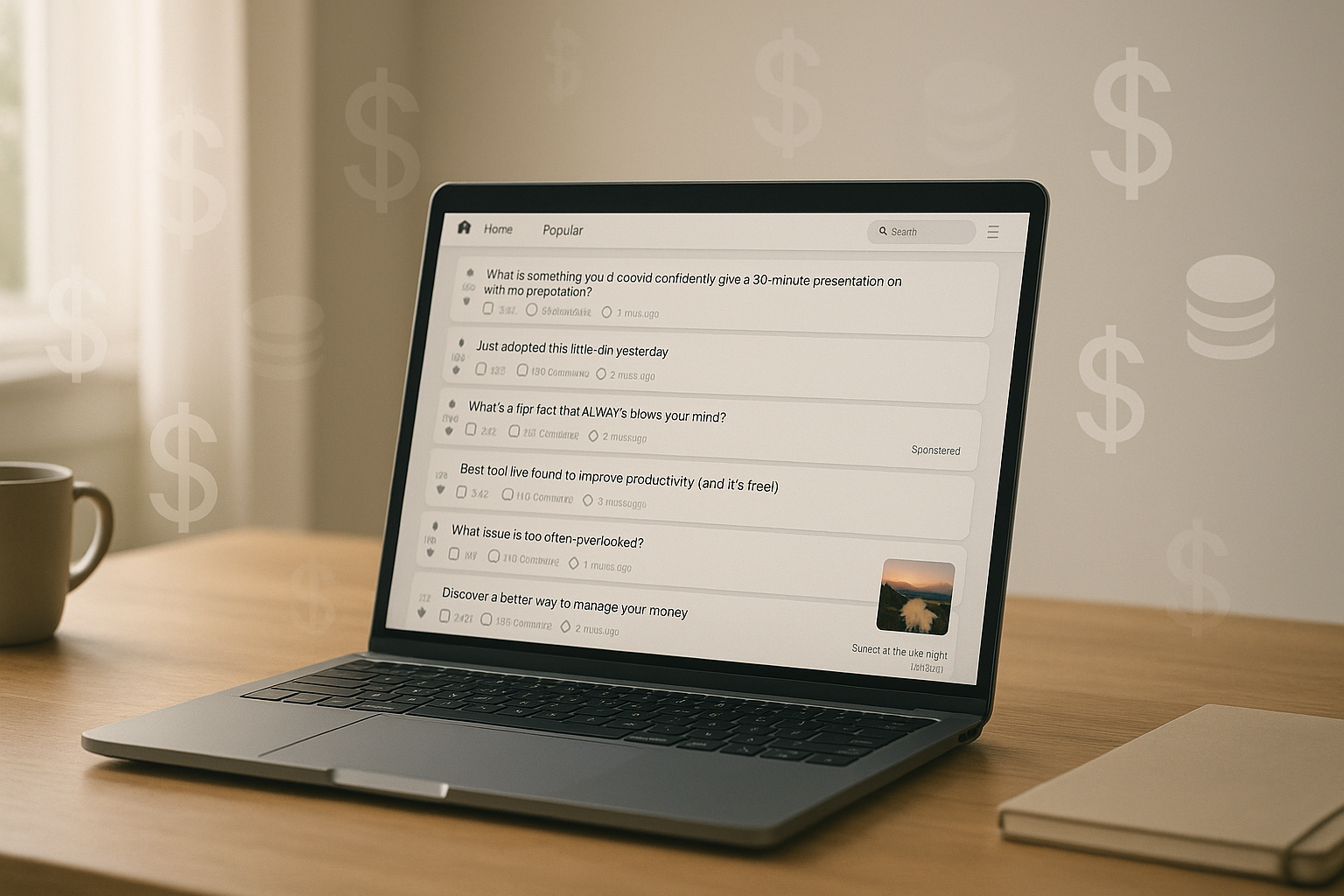There's something peculiar happening in the world of social media finance. While Wall Street analysts typically pride themselves on being able to decode just about any business model – from Facebook's targeted ad machine to Google's search dominance – Reddit's recent financial performance has left even the savviest investors utterly baffled.
The platform's latest earnings report has sparked a genuine mystery: How on earth is Reddit generating so much advertising revenue when most of its users swear they barely notice any ads?
I've been covering digital media economics since 2018, and I've never seen anything quite like this disconnect between user perception and financial reality.
The Invisible Money Machine
Reddit's numbers don't just look good – they've sent the stock soaring to heights that prompted some contrarian investors to establish short positions. Those shorts are now nursing wounds after another earnings beat that defied expectations. It's left them wondering if they've fundamentally misunderstood what makes Reddit tick.
And honestly? The confusion makes perfect sense.
Walk through Reddit's interface and you'll find yourself in what feels like the internet's last non-commercial frontier. No algorithmic bombardment of sponsored content. No auto-playing video ads. Just... conversations. Yet somehow, their financial filings tell us advertising makes up between 84-98% of total revenue. That AI data licensing deal everyone made such a fuss about? It's contributing mere single to low double-digit percentages.
Jim Cramer – who, love him or hate him, occasionally stumbles into accidental wisdom – called Reddit "basically the last bastion of the old school internet." For once, the man might be onto something.
The Value Nobody Sees (But Advertisers Pay For)
Here's what makes this whole situation so fascinating: Reddit's advertising value isn't built on flashy creative or interruptive experiences. It's built on something far more valuable – context and community.
Think about it this way. If you hang out in r/MechanicalKeyboards, you're essentially raising your hand as someone interested in... well, mechanical keyboards. A company selling custom keycaps doesn't need fancy targeting algorithms to find you. You've already self-selected into their target audience.
"We're seeing conversion rates from Reddit that blow our Facebook campaigns out of the water," one D2C brand manager told me last week (requesting anonymity because their agency wouldn't approve the interview). "The CPMs are higher, but the intent is just different."
That contextual relevance commands premium pricing. Reddit doesn't need the staggering impression volume of platforms like Meta because they can charge substantially more for these highly targeted community placements.
The "I Don't See Ads" Paradox
There's another curious phenomenon at play here – what I've started calling the "attribution paradox." Many Reddit users genuinely believe they're immune to the platform's advertising... while simultaneously being influenced by it.
Look, we all like to think we're savvy media consumers who can spot commercial content a mile away. But Reddit's native ad units blend so seamlessly with organic discussions that the line between advertising and content becomes blurry. A sponsored post about a new gaming keyboard doesn't feel like an ad when it appears in a subreddit where people are already discussing... gaming keyboards.
I've watched focus groups where Reddit users claimed they "never clicked ads" while simultaneously describing purchases they made after discovering products on... Reddit. When shown screenshots of the actual ads they'd engaged with, many didn't even recognize them as paid placements.
The Bear Case Isn't Crazy
Now, the short-sellers aren't completely off base. Reddit's decentralized structure – those semi-autonomous subreddits governed by volunteer moderators – creates genuine brand safety challenges that could eventually spook more conservative advertisers.
And that PE ratio? Whew. It suggests the market is pricing in some mighty aggressive growth assumptions.
"They're trading like they've already solved the monetization puzzle," a hedge fund analyst (who has a small short position) told me over coffee yesterday. "But the platform was designed explicitly to resist the kind of commercialization that drives shareholder value."
It's a fair point. There's an inherent tension between what makes Reddit valuable to users and what makes it valuable to shareholders.
So Where Does This Leave Us?
The truth probably sits somewhere in that uncomfortable middle ground between the bull and bear extremes. Reddit has built something genuinely unique – an advertising platform that delivers value in ways traditional metrics sometimes struggle to capture. At the same time, its current valuation bakes in some pretty rosy assumptions about future growth.
For investors trying to make sense of this contradiction, watch the advertiser retention numbers in coming quarters. If brands keep increasing their Reddit budgets despite broader digital advertising headwinds, those short positions might need reconsideration.
In the meantime, millions of Redditors will continue scrolling past ads they swear they never see, engaging with brands they claim to ignore, and participating in one of digital advertising's most fascinating paradoxes.
And Wall Street? They'll keep trying to decode the platform that doesn't quite fit any of their existing models – which might be precisely what makes Reddit so valuable in the first place.




